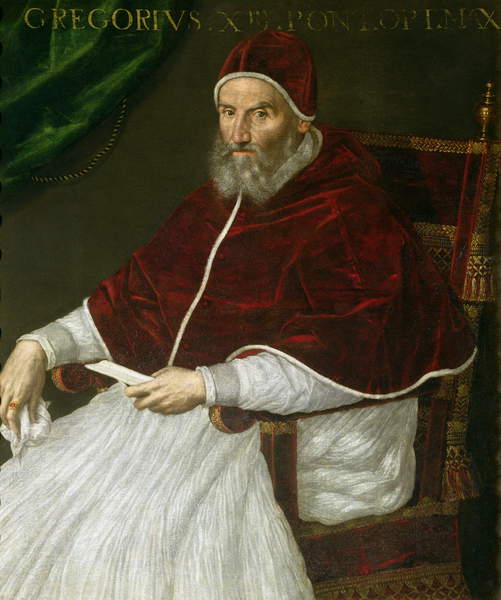Throughout the history of humankind, man (and woman) has used calendars to track the seasons to help us with planting, harvesting, and for knowing when it’s OK to take candy from strangers.
I’m not talking about the calendar of buff firefighters your Aunt Linda has in her cubicle at the office. I’m speaking on calendars like the Buddhist calendar, the Byzantine calendar, or the Bengali calendar.
Most of the world uses the Gregorian calendar and according to that calendar it is the year 2020. It’s the year 2970 on some calendars (Berber). While on others it’s the year 5780 (Hebrew).
So why does most of the world use the Gregorian calendar? Who created it? Who named it and what was wrong with the calendars we used before?
The problem began around 45 BC when the Julian calendar was made into law in the Roman Empire by one Julius Caesar. You may remember him from his insane military victories and some stabby-stabby times with his boi Brutus.
Ol’ Julius wanted to improve the Roman calendar and assembled a crew of smarty-pants Greeks to handle the details. One “So let it be written, so let it be done” later and the Roman Empire had a new work week and TGI Friday’s was invented (allegedly).
But by 1582, the whole thing was a mess.
The world was losing 11 (eleven!) minutes a year for the last 1,600 years because the Julian calendar was just a fraction off. Easter was now celebrated on July 4 (maybe), up was black, and the first draft of Peter Jackson’s Lord of the Rings was handed in. Nothing was right and everything was too damn long.
Also, because the Julian calendar was a fixed calendar it meant that the equinoxes kept slipping into other seasons. The March equinox was happening in winter. And we all know what happens in winter…

Something had to be done and Pope Gregory XIII was the guy with the plan.
He assembled a group of scientific calendar experts (who knew those existed?) and after a few Zoom meetings, they handed their new and improved calendar to the pope, who said, presumably, “Sure,” and decreed it the best way to get us back on track.

But, the new calendar came with one caveat: ten days needed to be cut from the budget, effective immediately.
So, on October 4, 1582, citizens of Europe went to sleep, dreaming of turnips and movable type machines, and woke up on October 15. Most people hardly noticed.
The people of Frankfurt, Germany, rioted claiming that Pope Greg was trying to literally steal days from their lives. For the most part though, people could care less.
In fact, it took the next few centuries for countries around the world to even accept the changes and implement them. The last country to officially adopt the Gregorian calendar we know today? Greece in 1923.
So there you have it. That’s the way it’ll be until the Sun expands, killing everything in the universe.
Unless, of course, we decide to change it again.

